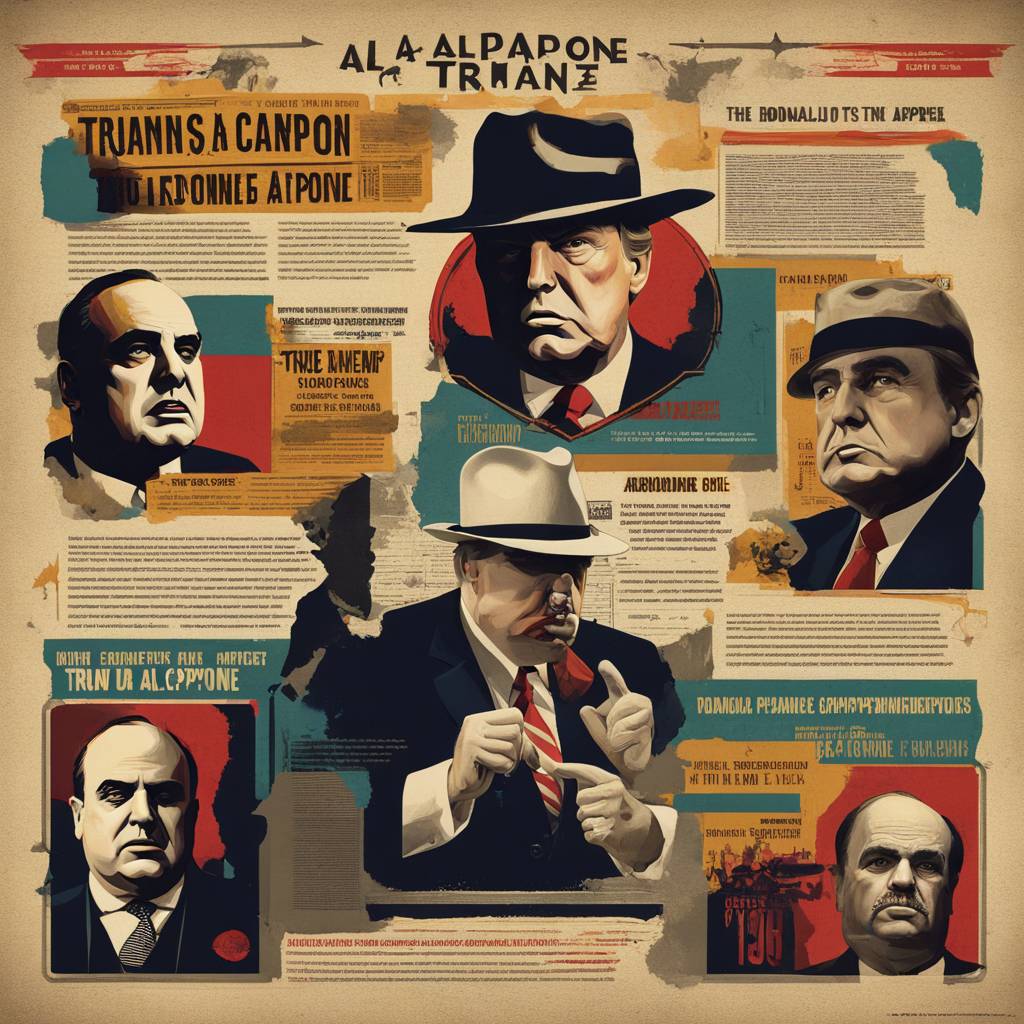Mr. Trump’s embrace of a criminal persona challenges conventional wisdom as he faces four indictments. Drawing parallels to notorious gangster Al Capone, Mr. Trump seeks to reshape his lawbreaking as vigilante justice and position himself as a folk hero. By adopting the guise of the gangster, he attempts to recast his actions as a subversive attempt to maintain order and peace. Despite the multiple scandals he has faced, it is unlikely that a criminal conviction will derail his candidacy, as his supporters seem to embrace his criminal-like persona.
The appeal of gangster fables in American life can be seen in their portrayal of the dark, shadowy side of the country’s self-conception. They speak to the rejection of certain qualities and demands of modern life, reflecting a part of the American psyche that resonates with many Republican voters. The stories of immigrant assimilation and success, combined with anti-immigrant sentiment and rivalry, hold a particular allure for those who view themselves as enterprising, loyal, and distrusting of government. The gangster hero resonates with conservative values, presenting a flawed yet ultimately respectable figure.
Gangster fables offer a depiction of characters who navigate the complexities of big city life with force and determination, without losing sight of important values such as faith and family. Despite their criminal activities, these characters embody qualities that resonate with ideal conservative citizens, portraying an image of righteousness in a corrupt society. Mr. Trump recognizes the power of these narratives in American culture, understanding that when the state is perceived as corrupt, the crook can become a symbol of defiance against a flawed system, attempting to beat it at its own game.
In portraying himself as a kind of Everyman bravely challenging the system, Mr. Trump taps into a deeply rooted cynicism towards authority figures and politicians. By aligning himself with the gangster archetype, he seeks to position himself as a figure who transcends traditional notions of law and order. In a society where perception often shapes reality, Mr. Trump’s strategic adoption of a criminal persona serves not only to deflect attention from his legal woes but also to bolster his image as a powerful and defiant leader.
The comparison to Al Capone underscores Mr. Trump’s attempt to transform his legal troubles into a form of entertainment for his supporters, framing his indictments as a symbol of his willingness to stand up to the forces working against him. By using the language of gangster mythology, Mr. Trump seeks to appeal to a certain segment of the population that admires traits such as bravery, defiance, and a willingness to challenge authority. In a political landscape where authenticity and strength are often valued over traditional moral values, Mr. Trump’s criminal persona may resonate with voters seeking a figure who embodies a sense of rebellion against the establishment.
Ultimately, the narrative of the gangster as a tragic hero holds a timeless appeal for many Americans, reflecting a deep-seated admiration for figures who operate outside of societal norms in pursuit of their own code of ethics. Mr. Trump’s calculated embrace of this persona taps into longstanding cultural tropes that valorize the figure of the outlaw and challenge the authority of the state. By aligning himself with the image of the gangster, Mr. Trump seeks to shape his public image as a figure who embodies the spirit of rebellion and defiance, appealing to voters who see themselves as marginalized or disenfranchised in a society where power and influence often dictate the terms of success.








